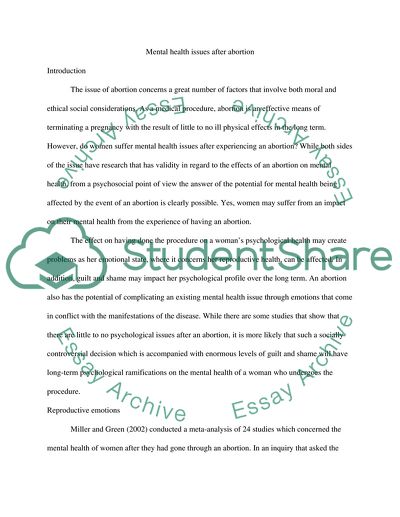Cite this document
(Mental Health Issues after Abortion Research Paper - 1, n.d.)
Mental Health Issues after Abortion Research Paper - 1. Retrieved from https://studentshare.org/health-sciences-medicine/1750544-do-women-suffer-mental-health-issues-after-experiencing-an-abortion
Mental Health Issues after Abortion Research Paper - 1. Retrieved from https://studentshare.org/health-sciences-medicine/1750544-do-women-suffer-mental-health-issues-after-experiencing-an-abortion
(Mental Health Issues After Abortion Research Paper - 1)
Mental Health Issues After Abortion Research Paper - 1. https://studentshare.org/health-sciences-medicine/1750544-do-women-suffer-mental-health-issues-after-experiencing-an-abortion.
Mental Health Issues After Abortion Research Paper - 1. https://studentshare.org/health-sciences-medicine/1750544-do-women-suffer-mental-health-issues-after-experiencing-an-abortion.
“Mental Health Issues After Abortion Research Paper - 1”, n.d. https://studentshare.org/health-sciences-medicine/1750544-do-women-suffer-mental-health-issues-after-experiencing-an-abortion.


